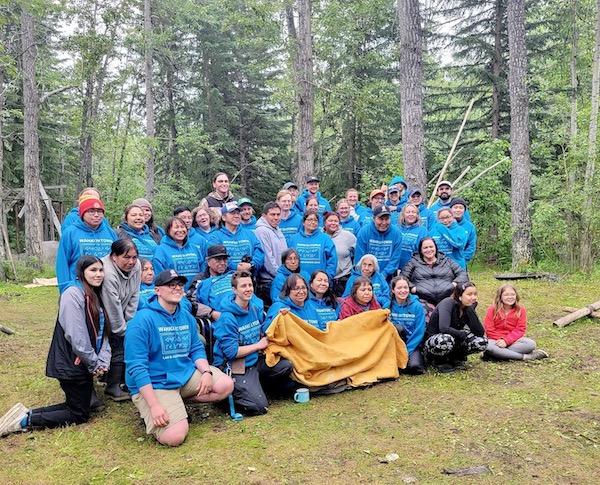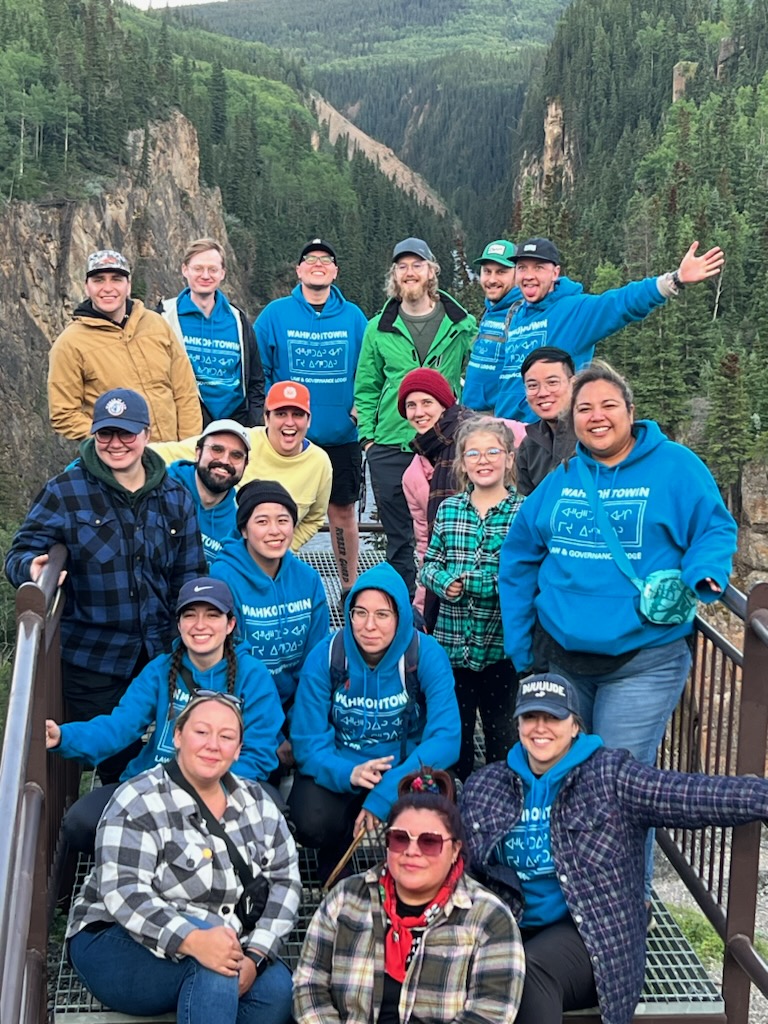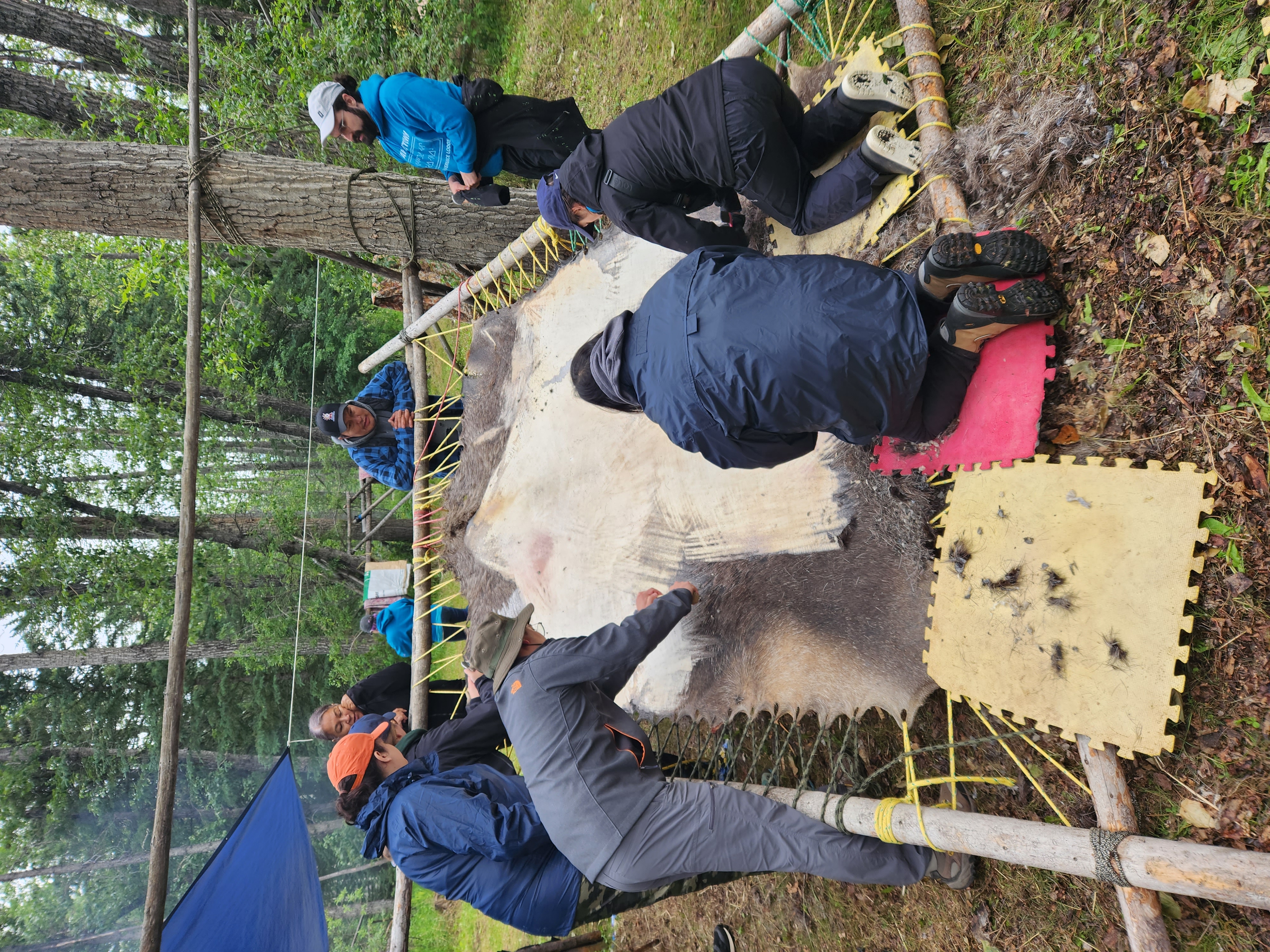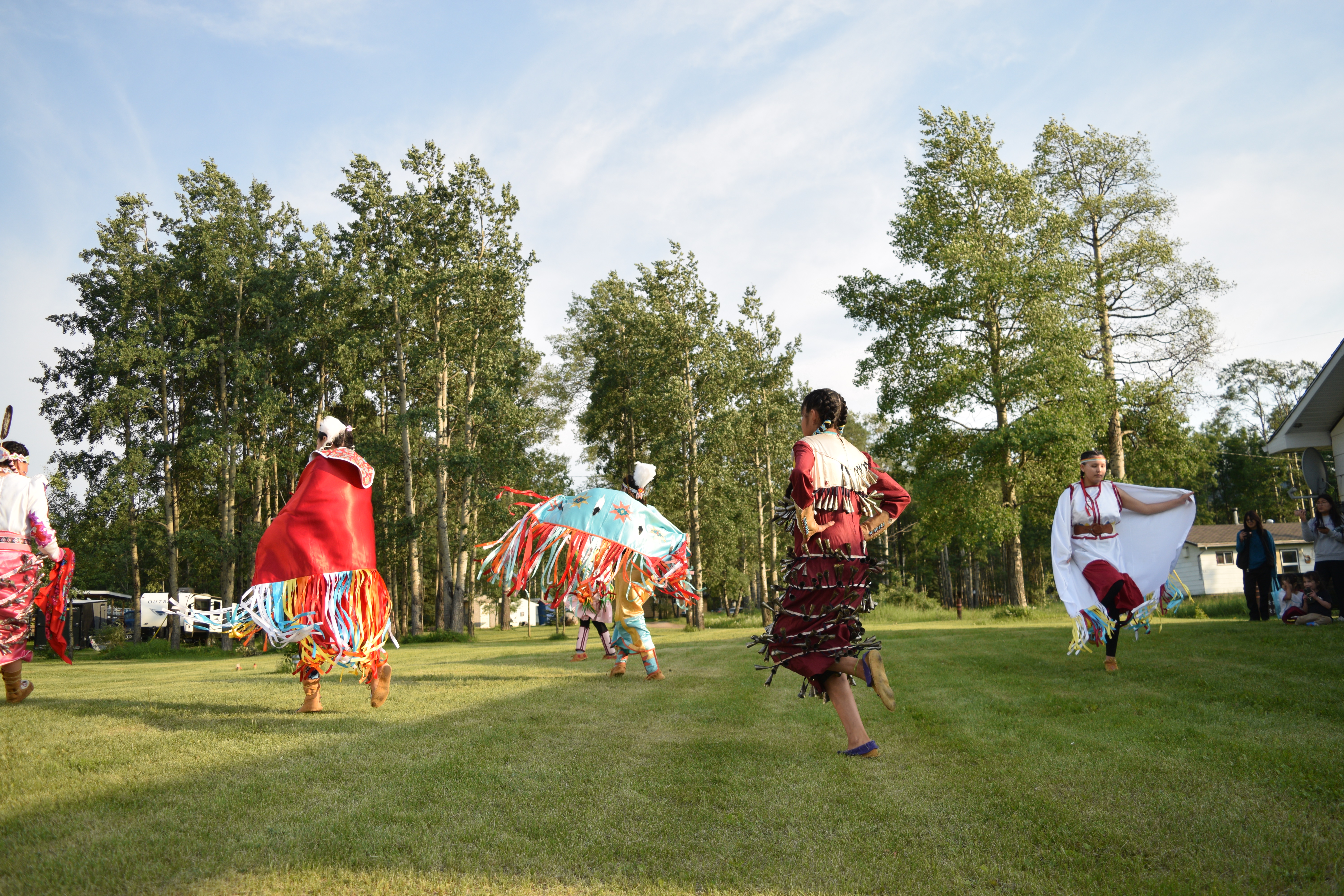ᐘᐦᑯᐦᑐᐏᐣ Wahkohtowin course offers transformative experience
Sarah Kent - 26 July 2023

Students at the University of Alberta Faculty of Law have gained a deeper understanding of Cree law after participating in a land-based learning camp with Aseniwuche Winewak Nation.
The ᐘᐦᑯᐦᑐᐏᐣ Wahkohtowin: ᒥᔪ ᐑᒉᐦᑐᐏᐣ miyo-wîcêhtowin Principles and Practice course gives law students a rare opportunity to learn directly from Elders, knowledge-holders and the land itself, all while immersed in community for four days.
“Students get to go beyond talking about Indigenous legal principles and experience how people live and apply these principles in day-to-day life and across generations,” says Associate Professor Hadley Friedland, co-founder and academic director of the Wahkohtowin Law and Governance Lodge.
“It's such a powerful, transformative experience for all involved.”
First delivered in 2017, the for-credit course has facilitated meaningful connections with Aseniwuche Winewak Nation and vital learning opportunities for students.
 “This is such a special course because the idea originated from the community — from my late mother-in-law, Adelaide McDonald, an Elder and Healer of Aseniwuche Winewak Nation,” says Friedland. “It was co-developed with a team of 10 community instructors, under her leadership, and it continues to be co-taught with those community instructors, carrying on her vision.”
“This is such a special course because the idea originated from the community — from my late mother-in-law, Adelaide McDonald, an Elder and Healer of Aseniwuche Winewak Nation,” says Friedland. “It was co-developed with a team of 10 community instructors, under her leadership, and it continues to be co-taught with those community instructors, carrying on her vision.”
The course is led by Friedland, Koren Lightning, who is the legal director of the lodge, and a community-based instructional team from Aseniwuche Winewak Nation.
It begins with in-class instruction, readings and reflexive journaling before students travel to the First Nation territory, located near Grande Cache.
“Students don't only learn from me as a law professor, talking in a classroom, but directly from Cree Elders and knowledge-holders in a land-based setting. They are welcomed into and immersed in the community for four days,” says Friedland.
HANDS-ON LEARNING
The course guides students through hands-on activities to learn about the fundamental Cree concepts of ᐘᐦᑯᐦᑐᐏᐣ wahkohtowin (relationality and interdependence) and ᒥᔪ ᐑᒉᐦᑐᐏᐣ miyo-wîcêhtowin (good relations).
In addition to visiting, storytelling and gathering edible plants, a central activity of the camp is participating in the traditional brain-tanning of a moose hide with Elders and other knowledge-holders.
 “Tanning a moose hide means so much more to me than a Law School course,” says Tyler Ermineskin, ‘25 JD. “Aseniwuche Winewak Nation's legal orders are not written down like Canada's Constitution, rather it is a way of life that is passed onto the next generations and can be understood from such a young age.”
“Tanning a moose hide means so much more to me than a Law School course,” says Tyler Ermineskin, ‘25 JD. “Aseniwuche Winewak Nation's legal orders are not written down like Canada's Constitution, rather it is a way of life that is passed onto the next generations and can be understood from such a young age.”
The course was especially meaningful for Marc Jr. Doire, a student in the Bachelor of Arts in Criminology, Field-Placement Stream and Certificate in Indigenous Governance and Partnership programs.
As a member of Aseniwuche Winewak Nation, he had the opportunity to learn directly from his family.
“Taking part in the Wahkohtowin course was the most important chapter of my academic story,” says Doire. “Learning our family trade from my aunties, uncles, cousins, and grandmother for credit as a University of Alberta student was the most full-circle, life-changing academic experience I could have ever taken part in.”
“In true miyo-wîcihtowin fashion, I grew closer to my family and created lasting relationships with my peers, Wahkohtowin Law and Governance Lodge staff, and instructors, who collectively make up my Wahkohtowin family,” he says.
By actively engaging with the teachings of the community, students gain a profound insight into the legal principles, traditions and values that have shaped Cree ways of life in Aseniwuche Winewak territory.
“It was an honour to be led by the AWN youth on a walk where the youth toured us around their community teaching us the laws that their parents and grandparents taught them,” says Ermineskin. “Witnessing their embodied knowledge has demonstrated the ethical accountability we have to that knowledge and how we utilize it.”
That deep learning goes beyond what can be offered in a classroom, says Siobhan Washburn, ‘24 JD.
“It was amazing to be able to learn on the land, build relationships with community members and other students and participants, and learn from everyone there,” she says. “The chance to participate in the embodiment of law, and to be so generously welcomed by the community was an extremely meaningful experience."
The course has been transformative for students and their understanding of Cree law and governance.
“My outlook has changed when it comes to Wahkohtowin,” says Ermineskin. “Being a visitor at Aseniwuche Winewak Nation, I witnessed a community who have a collective vision for their people (future) and I have come to understand when there is no vision (direction), the people become complacent and lost. Wahkohtowin is a Cree word that encompasses so many meanings and teachings that centre relationships and our ethical accountability to each other.”
"Spending four days doing land-based learning was a beautiful way to experience law,” says Rebekah Mitchell, ‘25 JD. “I learned something from every participant in the Aseniwuche Winewak Nation, from Elders to youth.”
 The meaningful connections built during the course embody the spirit of wahkohtowin and miyo-wîcêhtowin.
The meaningful connections built during the course embody the spirit of wahkohtowin and miyo-wîcêhtowin.
“A highlight for me was the connections I made with community members who I look forward to keeping in touch with,” says Mitchell.
The course is possible thanks to the community-based instructional team from Aseniwuche Winewak Nation, which included community coordinators and instructors Alice Moberly and Carol Wanyandie; Elders Philomene Moberly, Mabel Wanyandie, Russell Wanyandie and Dorothy Karakuntie; and community instructors Vicky Wanyandie, Robert Wanyandie, Yvonne MacPhee, David MacPhee, Kenny McDonald, Danny McDonald, Vivian McDonald and Marianne Moberly.